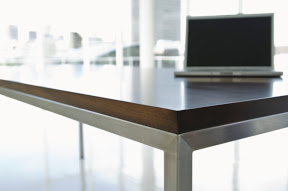Benjamin Franklin was big on getting up early. It makes sense. He lived from 1706 to 1790, prior to the invention of the incandescent light bulb.
So in order to invent bifocals, start a university and serve as the first United States ambassador to France, he probably had to take advantage of every moment of daylight. Modern technology solved that problem and effectively allowed the workday to expand beyond the rising and setting of the sun.
Unfortunately, as recent research might suggest, that is still where employers’ bias lies.
Among companies that offer flexible scheduling, supervisors implicitly favor employees who choose to work from 7 a.m. to 3 p.m. over those who opt into an 11 a.m. to 7 p.m. work schedule, according to a study by researchers at the University of Washington’s Michael G. Foster School of Business.
“Most people don’t even know that this bias exists,” said Kai Chi Yam, a graduate student at the University of Washington and an author of the study, the results of which are set to be published in the Journal of Applied Psychology later this year. “We know a lot about racial and gender biases, but many employers may have this bias without even knowing it.”
The study consisted of three separate experiments, the final of which asked participants to rate the performance of fictitious employees. The only difference among the employee profiles was the workday schedule. Across 141 participants, those studied gave higher ratings of both conscientiousness and performance to the employees who worked a 7 a.m. to 3 p.m. work day.
Kenneth Matos, the senior director of research at the Families and Work Institute, a nonprofit, said findings like this are important because they remind employers to be more conscious of how they make decisions that ultimately influence the company’s bottom line.
“Whenever you set any one strategy as inherently better than all others, you invariably push out some people who work best and contribute more to your organization using a different strategy,” Matos said. “Being able to allow people to make use of their most effective times is only going to enhance business returns.”
To many, flexible scheduling is practically unavoidable in the current 24-hour-a-day work environment. Even so, Matos understands that employers feel more secure when their employees choose to get work done earlier in the day.
“People often let go of anxiety when they can check something off of their list,” he said. “Having to wait longer to check something off of their list can keep them in a state of frustration or anxiety.”
Matos’ response to this anxiety: Get over it.
“You get the report at 3 p.m. as opposed to 7 p.m. when you’re not going to read it until the next day,” Matos posited. “Why do you care?”
The solution to avoiding this bias, experts say, is two-fold. The first step is to resolve basic scheduling issues. Late arrivers should complete necessary tasks within the early arrivers’ workday so the workflow isn’t disrupted. The second step is for employers to remember that their personal schedule preferences do not supersede company deadlines.
“Work today, for better or worse, is really 24 hour,” Matos said. “So don’t pin all of your expectations about when things come and go to your schedule, but instead think about the organization’s schedule. When are the due dates? Realize that whether you’re an [early bird] or a night owl, it’s still getting done on the organization’s time line. This needs to be the framework in which we talk about these things.”















